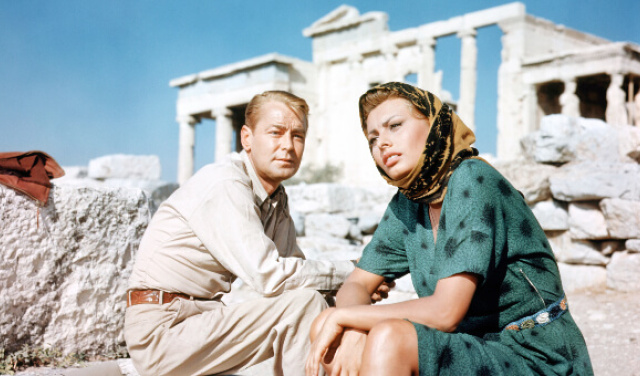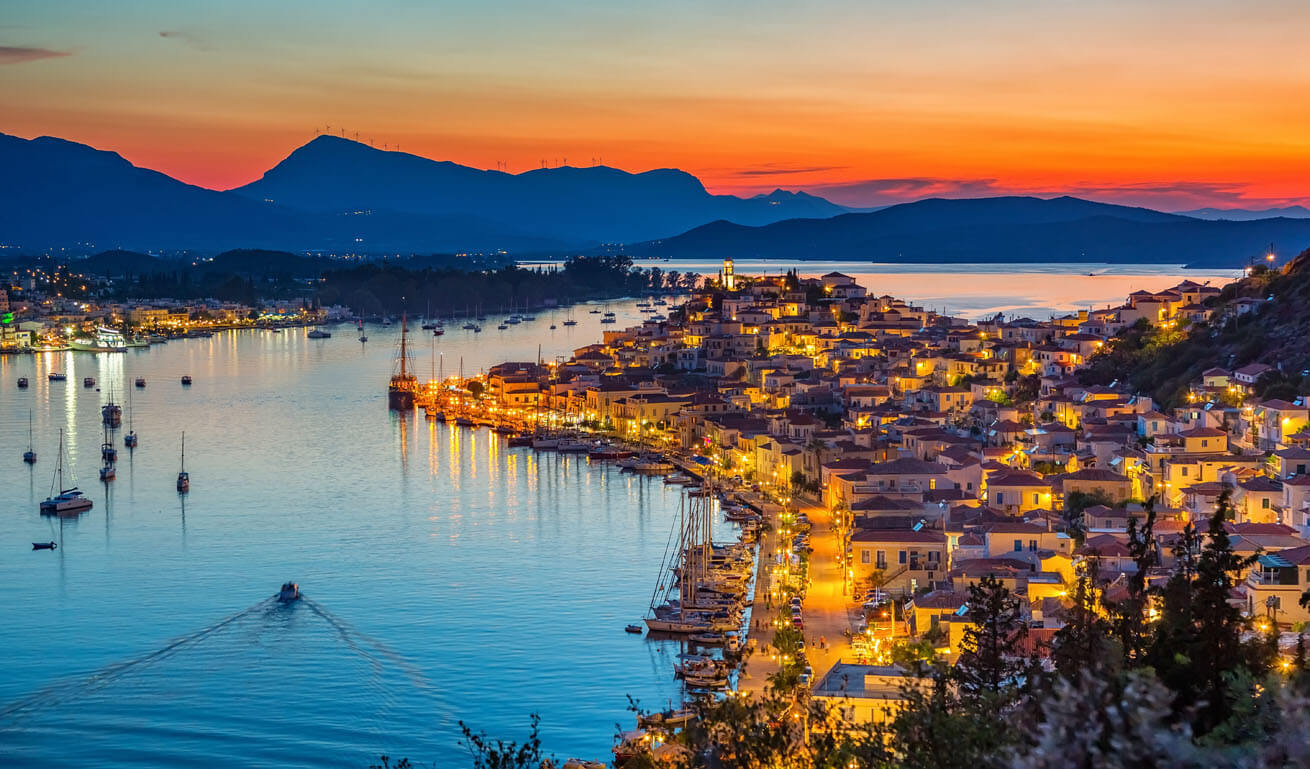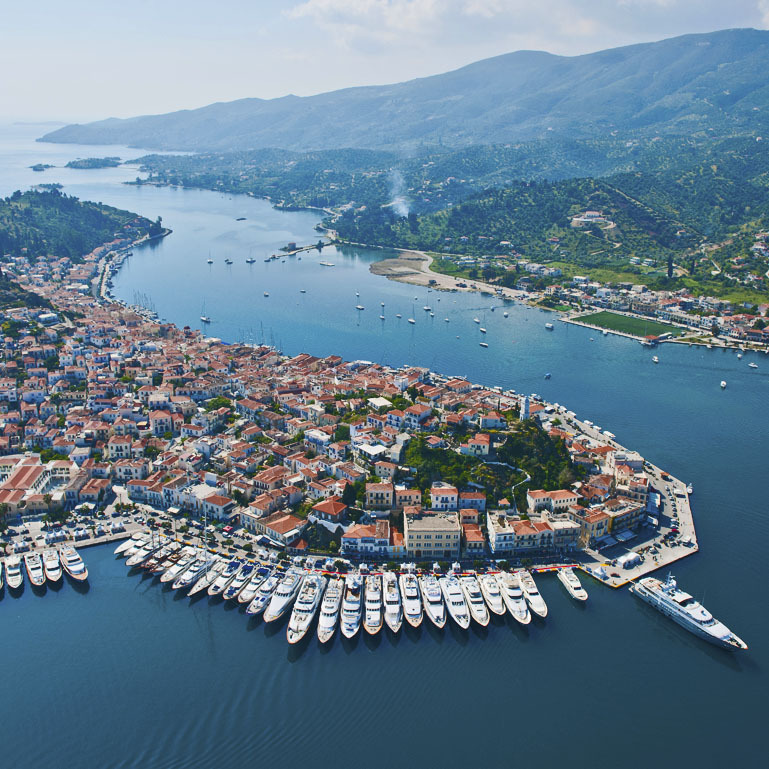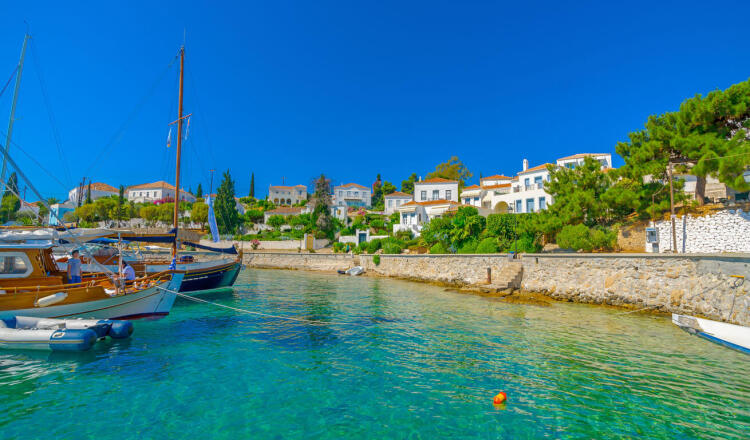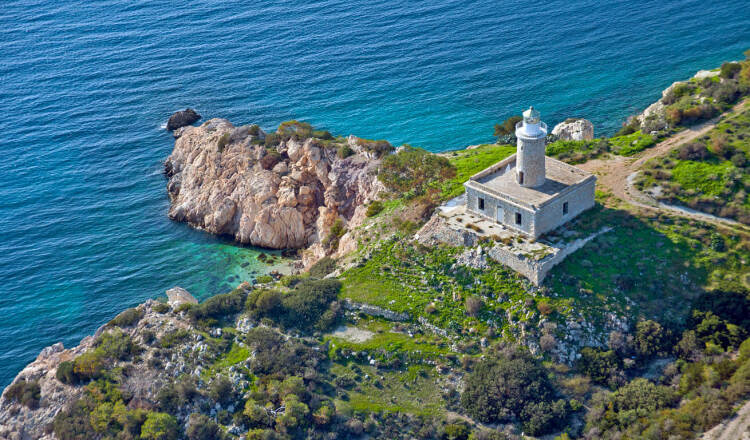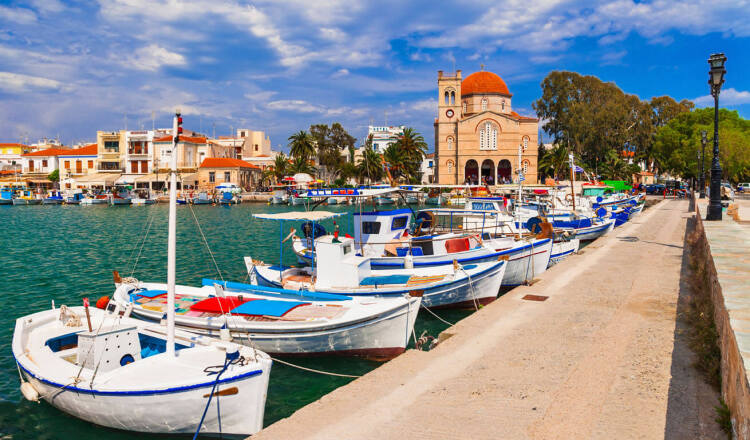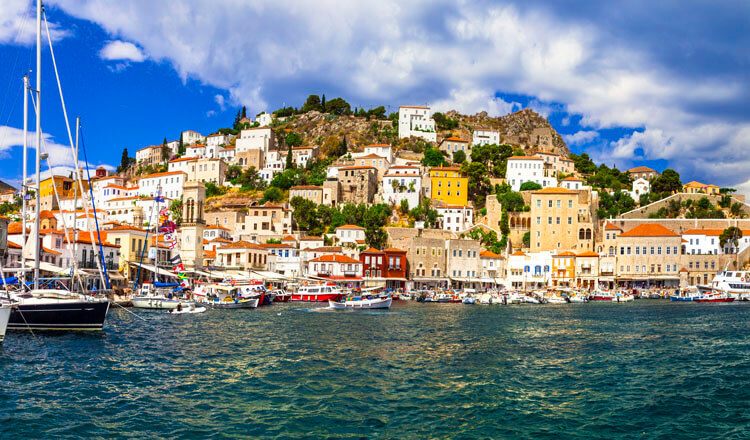Poros is made up of two islands, Sferia (named after Sferos, the charioteer of Pelopas, a mythical king of the Peloponnese) and Kalavria (meaning ‘fine breeze’); a small bridge connects the two islands. At first, Kalavria was dedicated to god Apollo, who later ceded the island to god Poseidon in exchange for the Oracle of Delphi. It is a green island with freshwater springs and streams. The smaller Sferia Island is a volcanic rock, where present-day Poros town was built.
Poros town and the harbour area have been built on the hillside, opposite the shores of Troizinia. The town’s picturesque alleys, Neorio, and Bourtzi Islet are some of the must-visit places on the island. As you stroll along the streets you will be impressed by the neoclassical style of most buildings, such as the Deimezis building, constructed with grey and red stone, and Grivas’ shop, with the large doors and charming interior decoration, a late nineteenth century -sort of- department store. Villa Galini is another really beautiful house, built in 1892 near Aspros Gatos location, which has time and again provided accommodation to celebrities of the arts.
The clock tower of Poros is the island’s landmark, located on the hilltop, and surrounded by prickly pear trees and pine trees. This spot offers an amazing view of the harbour, the opposite shores of the Peloponnese, and the Lemon tree forest. The clock stands out, from whichever location you look at it; it is truly the town gem!
Start your cultural trip with a visit to the Archaeological Museum on Koryzi Square; you will see finds that date as far back as the Mycenaean Period (circa 1700 - 1100 BC) and up to the Roman times. They were unearthed during the excavations at the site of the temple of Poseidon in Ancient Troezen [Troizina], at the royal tombs of Magoula and Apathia, at Modi and at Agios Konstantinos, Methana. One of the most impressive exhibits in the museum is a large sculpture in relief depicting a dog. See also the plaster cast of a stele with inscription from Troizina, containing the 480 BC Athenian Resolution regarding the thwarting of the Persian invasion plans, as proposed by Themistocles. Another impressive exhibit is the pedestal (with inscription) of a copper statue of Marcus Aurelius, Emperor of Rome, offered by the town of Methana (175 - 180 AD).
The ruins of the temple of Poseidon (520 BC) are to be found in Palatia location (5.5 km NE), between Vigla and Profitis Ilias area, in the north part of the island. The main temple was a rectangular peripteros construction (i.e. there was a perimeter of six and twelve columns). You can see the foundations of this temple, the stoas [porticos] of the agora and the Vouleftirion (the parliament building). The temple forms an isosceles triangle with the temples of Aphaia on Aegina Island and that of Poseidon in Cape Sounio.
The Folk Art Museum of Poros houses a collection of houseware, items of daily use, farming tools, local style furniture, a loom, pieces of embroidery, woven fabrics, all kinds of needlework, costumes, traditional clothing, photos etc.
Visit Agios Georgios [St. George’s] Church in Poros town; you will be impressed by the wonderful murals painted by K. Parthenis [a popular Greek painter]. See also the listed building designed by E. Ziller [a famous 19th century architect], which is used as a conference room by the Municipality of Poros. This neoclassical building was renovated in 2002 and is today the venue for many municipal events.
The most impressive religious site of the island is the 18th c. Zoodochos Pigi Monastery, located 4 km E of Poros Town. There are high walls around it, without openings, with thirty (30) monastic cells still remaining to this day. Visit the library, where you will be impressed by the rare collection of religious [canonical] books and patriarchal codices that are hundreds of years old.
Stop by the Hatzopoulios Public Library of Poros, where there is a lending section and a screening room. On the ground floor you can visit the permanent exhibition titled "Shells & Sea".
Visit Dana Lighthouse, located at a 6 km distance NE of Poros Town. Enjoy the lovely view over the Saronic Gulf and the Methana peninsula. It’s a beautiful stone-built square lighthouse and it holds a prominent place in the naval history of Greece.
Take a trip to the Russian Naval Dockyard, located 5km NW of the town and the harbour in a beautiful cove. The original structures included warehouses and bakeries built to provide for the needs of the Russian Fleet stationed there back in 1834.
Take the boat to Galatas (the opposite Peloponnese shore), where the popular Lemon tree forest is located. The area affords lovely views of Poros Island.
Visit also the nearby islets of Modi, whose waters hold a shipwreck that dates to the Mycenaean Period (2nd millenium BC), and Daskaleio with a picturesque country chapel on it. The third islet, Bourtzi, was originally the location of a Byzantine fort, which later became a Venetian stronghold, and after that an Ottoman fortress, in order to protect the harbour. Bourtzi is to be found in Moni bay, off the shores of the Peloponnese, and you can reach it by swimming. It is uninhabited.
